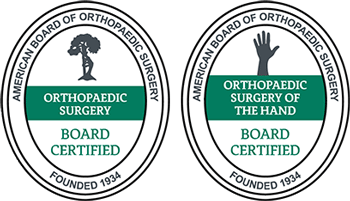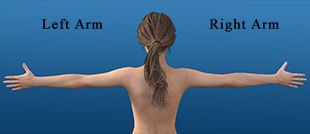Pinched Nerve? Here’s 7 Home Remedies to Help Reduce Some Pain
A pinched nerve can be a source of extreme discomfort and pain. It can make daily activities challenging and uncomfortable due to the pain, numbness, tingling, or weakness it can cause. While seeking professional medical advice is crucial for a proper diagnosis and treatment plan, several home remedies and self-care techniques may help alleviate some pain associated with a pinched nerve. Here, we’ll explore what a pinched nerve is, its common symptoms, and several effective at-home remedies that may provide relief.
What Is a Pinched Nerve?

A pinched nerve, medically referred to as nerve compression or radiculopathy, occurs when a nerve is undergoing pressure, irritation, or constriction from surrounding muscles, bones, tendons, or cartilage. This compression disrupts the nerve’s normal functioning, leading to pain and limited mobility.
Pinched nerves can occur in various parts of the body. The most common areas include:
- Neck.
- Lower back.
- Shoulders.
- Hands and wrists.
- Elbows.
Common symptoms include:
- Numbness.
- Sharp, burning, or radiating pain.
- Tingling or “pins and needles” sensation.
- Muscle weakness.
What Causes a Pinched Nerve?
A nerve can become pinched by anything that applies pressure on the nerve or the surrounding structures. Common causes include:
- Injury.
- Repetitive motion.
- Poor posture.
- Herniated disc.
- Obesity.
- Pregnancy.
- Underlying health conditions, such as diabetes or arthritis.
Carpal Tunnel Syndrome
Carpal Tunnel Syndrome (CTS) is one of the leading causes of a pinched nerve. It occurs when the median nerve becomes compressed or pinched as it passes through the carpal tunnel, a narrow passageway in the wrist. Activities involving repetitive wrist movements, such as typing, using a computer mouse, or gripping tools, can be major culprits. The symptoms of CTS can vary from person to person, and the severity can range from mild to severe. Here are some common signs and symptoms:
- Wrist pain: CTS often begins with mild-to-moderate pain in the wrist, particularly around the base of the palm. Pain may be intermittent or persistent.
- Hand numbness and tingling: One of the hallmark symptoms is numbness and tingling in the hand, particularly in the thumb, index finger, middle finger, and part of the ring finger. This sensation can extend up the arm.
- Hand weakness: As CTS progresses, you may experience weakness in the affected hand. Holding small objects or performing tasks requiring fine motor skills may become difficult.
- Nighttime symptoms: Numbness and tingling may worsen at night.
- Problems with both hands: While CTS typically affects one hand more than the other, it can occur in both hands or develop in another over time.
Home Remedies for Treating a Pinched Nerve
It’s important to note that some pinched nerves will require professional treatment. Here are some home remedies that may alleviate discomfort until you have time to visit a doctor.
Get Plenty of Rest
Give the affected area time to heal by avoiding activities that aggravate the symptoms, such as typing or playing sports. Resting the area can help reduce inflammation and give the inflamed nerve time to calm down. When you return to regular activity, do it gradually to allow your body time to adjust. If the pain returns, stop the activity and consult a doctor.
Adjust Your Posture
Your posture can be essential in alleviating discomfort caused by a pinched nerve. Poor posture could be the underlying cause of nerve pain; adjusting it can help. Elevating the affected limb can reduce swelling and promote circulation if the pinched nerve is in an arm or leg.
Consider Ergonomic Support
Investing in a standing desk or an ergonomic keyboard can make all the difference and help reduce nerve strain. Standing and moving around during the day is a great way to prevent and treat a pinched nerve in your back or lower body. Take regular breaks throughout the day to give your body a chance to recover.
Give Yourself Some Gentle Nurturing
Experiment with different ways to soothe discomfort. For example, if you have wrist pain, you could use a foam roller to massage your wrists. For those with CTS, a splint can immobilize your wrist and allow it to heal. An at-home massage can relieve pain in areas such as the lower back.
Stretch It Out
Gently stretching the affected nerve can ease the pressure. Try a few gentle stretching exercises, such as wrist rotations, neck tilts, shoulder blade squeezes, or any recommended by a physical therapist. Low-impact yoga resting postures, such as the child’s pose, can also help relieve tension and promote relaxation. If you have a pinched nerve in your neck or lower back, you could try curling up into the fetal position to see if this provides relief.
Apply Heat or Cold Therapy
Apply an ice pack to the affected area for 15-20 minutes. Take a break for half an hour and then re-ice if needed. Cold compresses can help reduce inflammation and numb the area for temporary relief. After the initial acute phase is over and the swelling has gone down, you can apply a heating pad to the affected area for another 15-20 minutes. This can help relax muscles that may have tightened around the pinched nerve and improve blood flow.
Nourish Your Body
Drink plenty of water to stay hydrated and eat foods or supplements that help with muscle recovery. With their anti-inflammatory properties, turmeric and ginger may help reduce inflammation and pain. Drinking ginger tea or incorporating ginger or turmeric into your meals may provide relief. Magnesium supplements or foods rich in magnesium can help relax muscles, cramps, and spasms. Omega-3 fatty acids found in fish oil supplements may have anti-inflammatory effects that could benefit nerve health. However, always speak with your doctor before trying anything new.
When To Seek Medical Attention
It’s essential to consult with a healthcare provider, especially if your symptoms are severe, persisting, or getting worse. These home remedies can relieve mild-to-moderate symptoms temporarily. They shouldn’t replace professional medical advice and care. To effectively diagnose and learn the best course of treatment for the long term, the best course of action is to visit a doctor. An orthopedic surgeon such as Dr. Knight in our Dallas office can provide an accurate diagnosis and an appropriate treatment plan to speed up your recovery.
person holding hands of another person by Towfiqu barbhuiya is licensed with Unsplash License

























